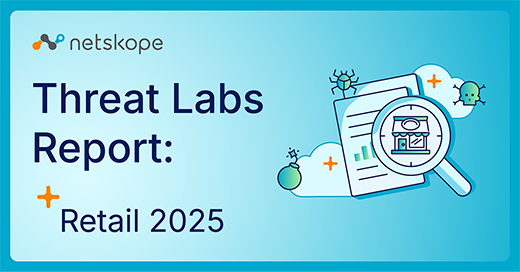This report examines recent trends in the adoption and use of generative AI applications, agentic AI platforms, cloud app usage, data policy violations, and malware distribution within the Retail sector. It highlights the growing security and compliance challenges organizations face as AI becomes increasingly embedded in daily workflows and cloud applications continue to expand.
GenAI usage: Adoption of genAI in retail is accelerating, with 95% of organizations now using genAI applications. ChatGPT, Google Gemini, and Microsoft Copilot lead adoption, while personal genAI accounts have declined as businesses transition to organization-approved platforms.
Agentic AI and custom platforms: Retail organizations are increasingly leveraging privacy-conscious, flexible genAI platforms such as Azure OpenAI, Amazon Bedrock, and Google Vertex AI. These platforms enable private model hosting, custom applications, and AI agents, providing organizations with greater control over their data. However, shadow AI remains a significant source of risk. The integration of genAI via APIs beyond the browser is growing rapidly, with 63% of organizations using api.openai.com and 44% using api.assemblyai.com.
Cloud applications usage: Personal cloud applications, including Facebook, LinkedIn, OneDrive, and Google Drive, remain widely used in workplaces, creating additional points of potential data exposure.
Data policy violations: Sensitive information continues to be uploaded to unapproved locations. Regulated data and source code account for the majority of violations, both in enterprise and personal apps, emphasizing the need for employee awareness and stricter controls over cloud and AI platforms.
Malware delivery: Attackers exploit trusted cloud services such as Microsoft OneDrive, GitHub, and Google Drive to distribute malware, taking advantage of user trust and high adoption rates. Organizations face ongoing challenges in detecting and preventing these attacks before files are shared internally.
This report highlights the need for retail organizations to enhance visibility, enforce stricter policies, and proactively mitigate risk across genAI applications, cloud apps, and API usage to protect sensitive data while enabling innovation.




















